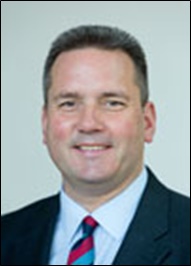Special Interest Group on Conflict & Catastrophe comment on Nepal
 As recently as January 2015, WONCA Executive approved the formation of a new WONCA Special Interest Group on Conflict & Catastrophe Medicine. Convenor, Prof Rich Withnall (pictured), has shared this message about the Nepal disaster and invited interested family doctors to join the new group
As recently as January 2015, WONCA Executive approved the formation of a new WONCA Special Interest Group on Conflict & Catastrophe Medicine. Convenor, Prof Rich Withnall (pictured), has shared this message about the Nepal disaster and invited interested family doctors to join the new group.
At 11.45am local time on 25 April, a major earthquake of 7.8 on the Richter scale hit Nepal. Its epicentre was 81km west of Kathmandu. A smaller earthquake occurred around 1pm local time on 26 April. Aftershocks are continuing. There have been significant avalanches in the Macchaputre and Everest regions. At least 7,040 people are known to have died. More than 14,021 have been injured. In the Sindhupalchok district north of Kathmandu, 95% of the houses were destroyed. Many are now living in open spaces under make shift tents. The fate of thousands more people in remote areas remains unknown as landslides and poor weather have hampered efforts to deliver aid to isolated districts. Sadly it is inevitable that the death toll will rise once rescue forces reach the remote affected areas.
The world has been saddened by this terrible tragedy. The international community is working together to provide what assistance it can. In response to requests by Nepalese colleagues, Governmental and non-governmental organisations (NGOs) are providing practical support. Official financial appeals have been launched across the world to raise money for the earthquake victims.
The Inverse Care Law highlights how those in the greatest need often receive the lowest, if any, standards of care. Natural disasters may exacerbate population deprivation and health inequality, making coordinated General Practitioner/ Family Medicine doctors’ efforts in times of catastrophe even more important. GP/FMDs’ scope of work in such environments is likely to be wide-ranging, and may include pre-hospital emergency care, occupational medicine, public health, environmental medicine and community mental health. Prof Pratap Prasad, WONCA South Asia Regional President, has highlighted how Nepalese MDs/GPs are providing the best possible services to victims as and when they can, but they are in dire need of assistance.
WONCA’s special interest groups comprise groups of individuals who share a common interest that is consistent with WONCA’s Mission and Objectives. The WONCA Executive has endorsed the creation of a Special Interest Group on Conflict & Catastrophe Medicine (SIGC&C) to provide a forum through which WONCA can lend support to peoples of the world when they face some of life’s greatest challenges. The SIGC&C will: provide useful in-country and regional contacts and networks of GPs/FMD; become a vehicle through which best practice and developments in conflict and catastrophe Family Medicine can be shared; influence the management of medical services during conflict or post-catastrophe in areas that have big needs but are resource poor; and encourage collegial discussions between countries.
At this sad time, the thoughts of all within the SIGC&C are with the Nepalese people and those in surrounding nations affected by this tragedy. Members of the WONCA SIGC&C are actively engaged within their own countries’ responses to the Nepalese disaster. Please get in touch if you would also like to become involved.
Find out more about the WONCA SIG on Conflict & Catastrophe Medicine
Join the WONCA SIG on Conflict & Catastrophe Medicine
See WONCA President's message on Nepal and reply from Prof Pratap Prasad (in Nepal)
Prof Rich Withnall FRCGP
Convenor WONCA SIG on Conflict & Catastrophe Medicine
email convenor:
SIGC&[email protected]